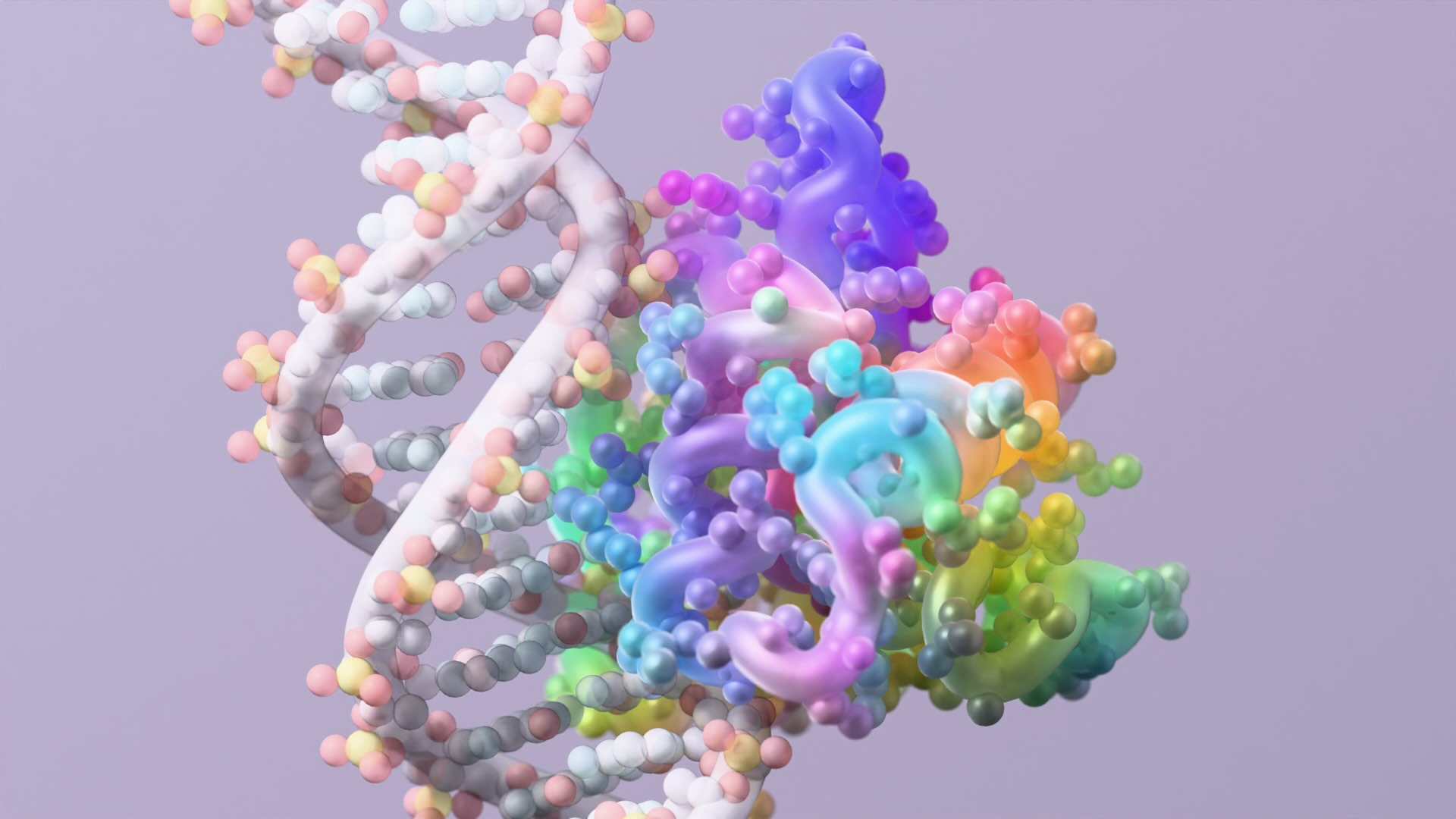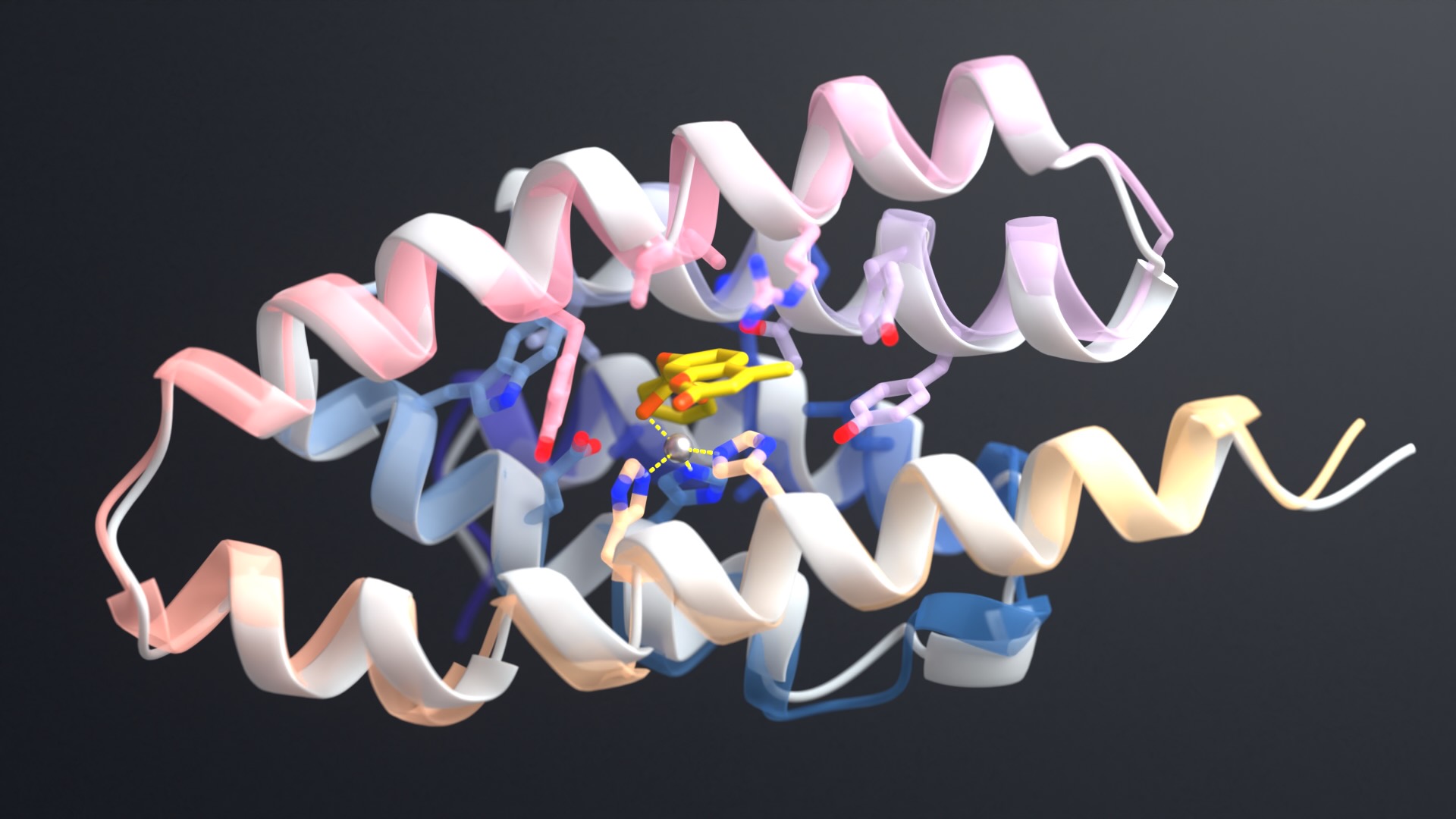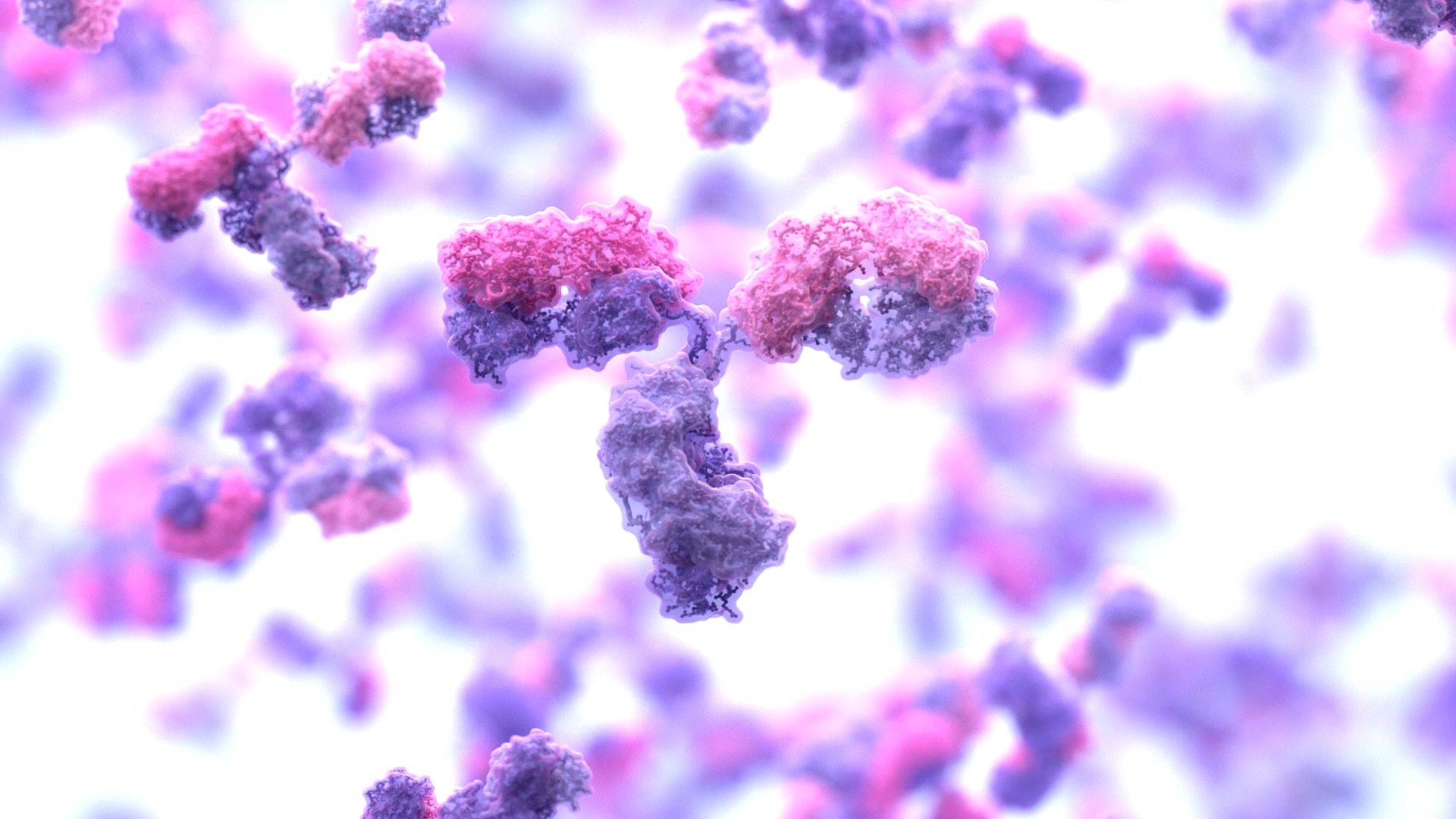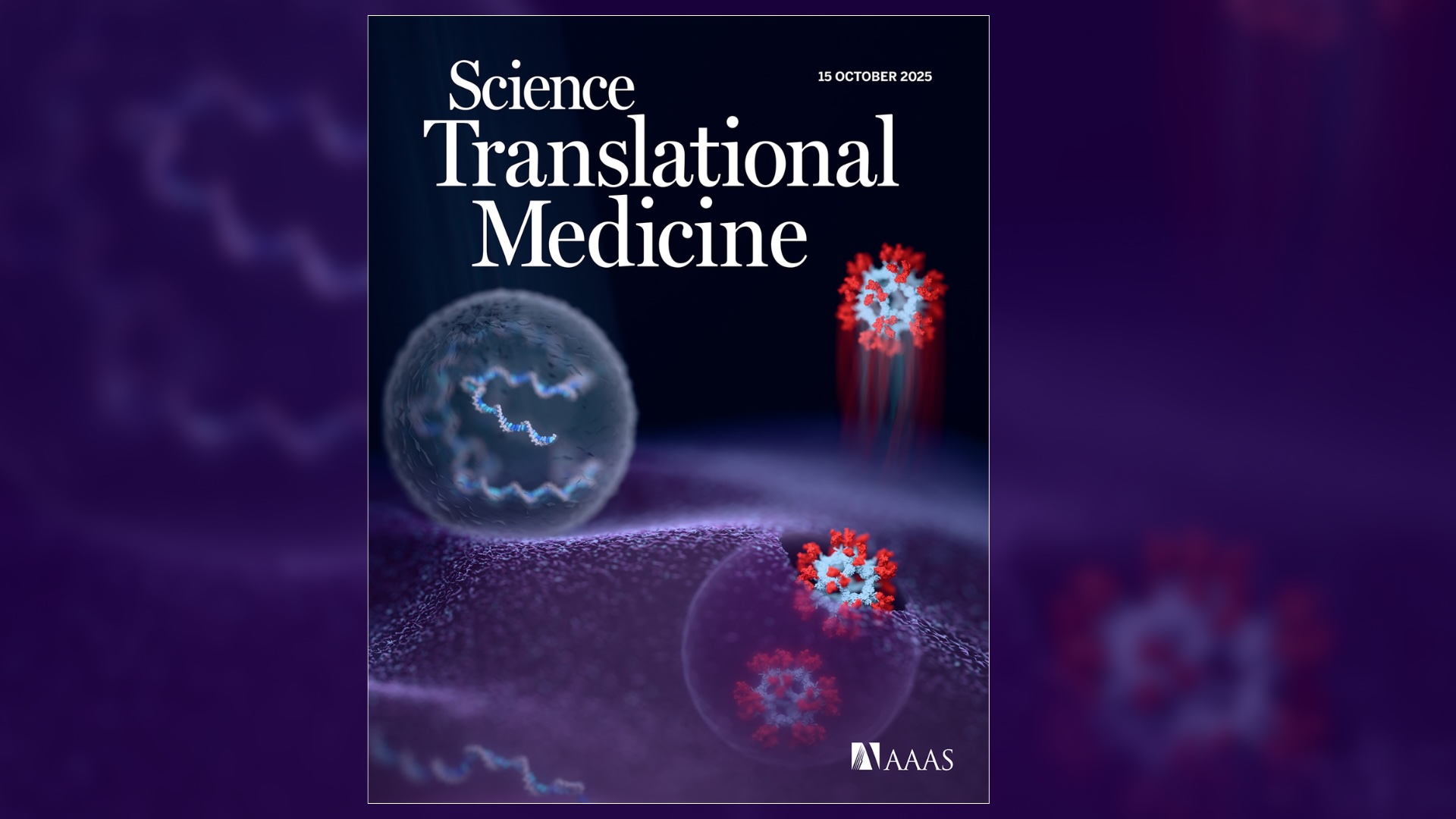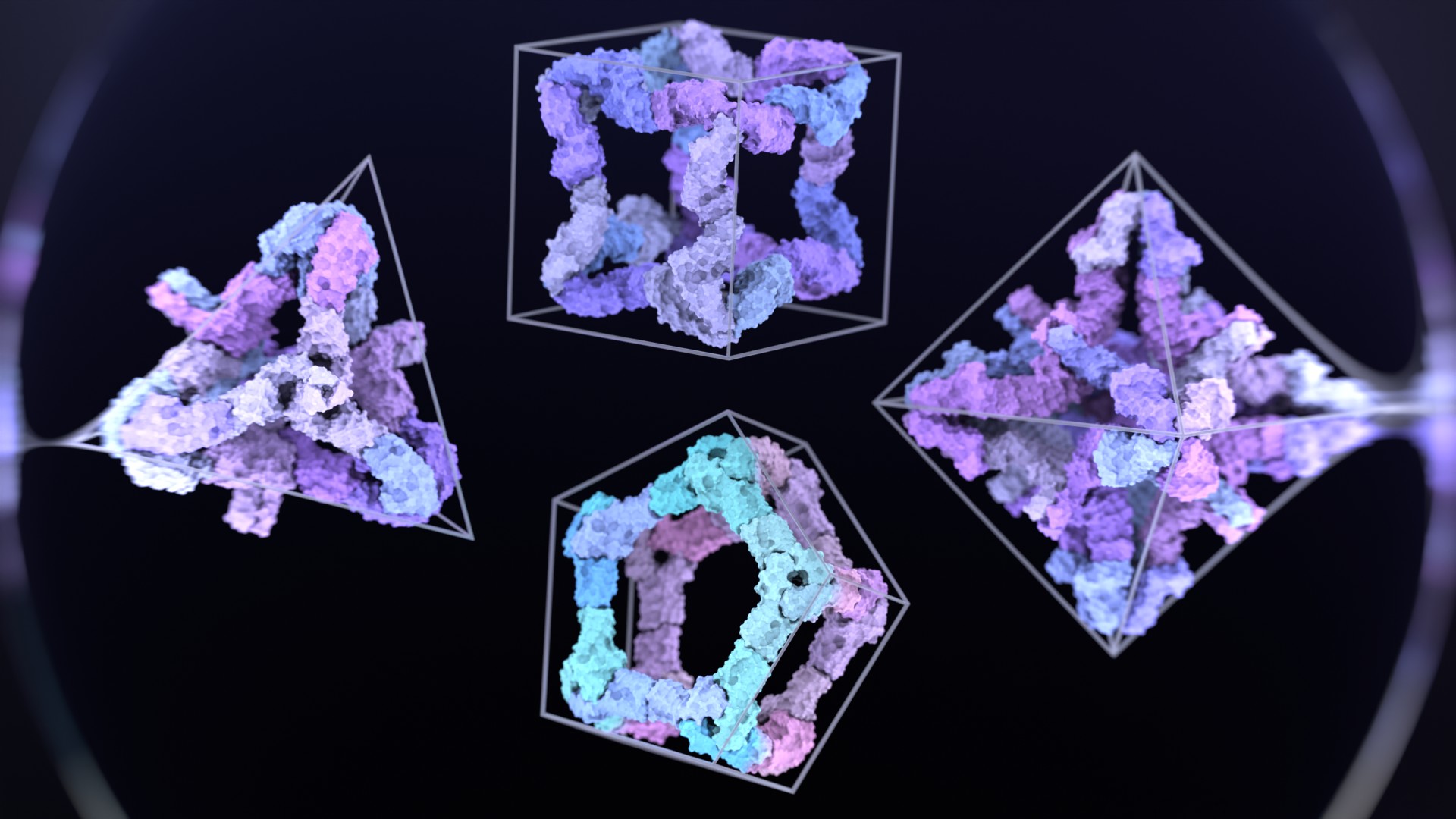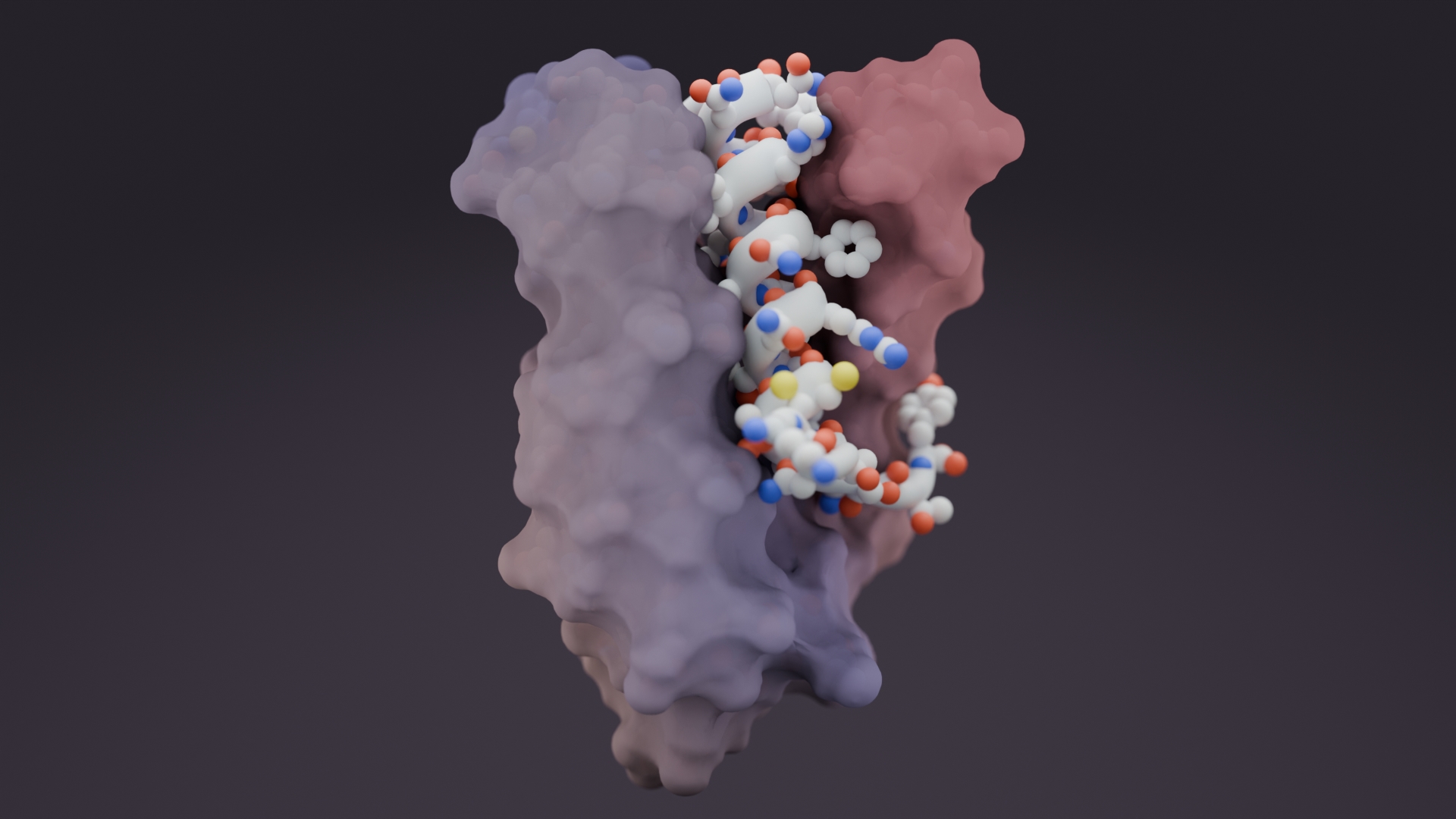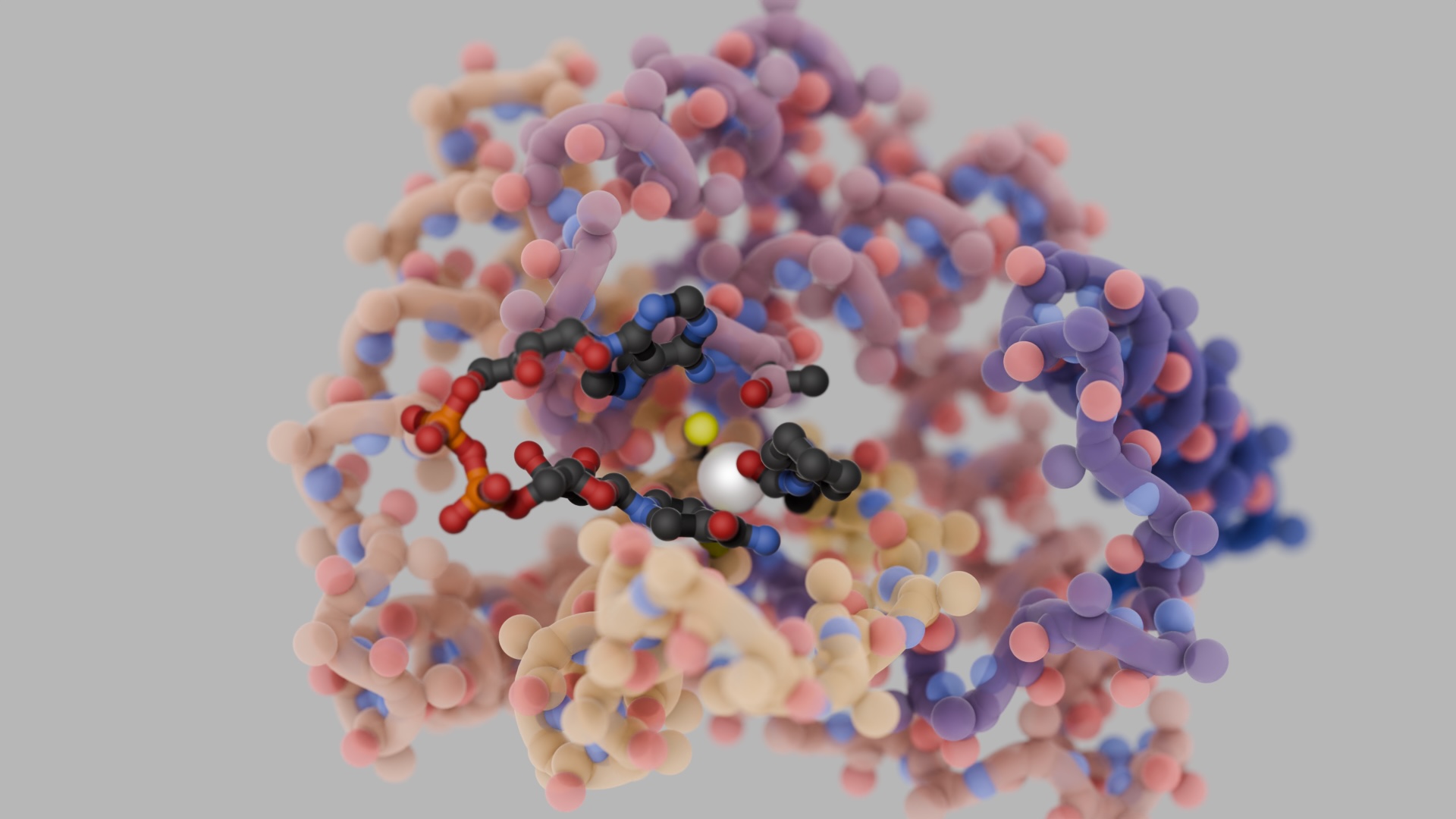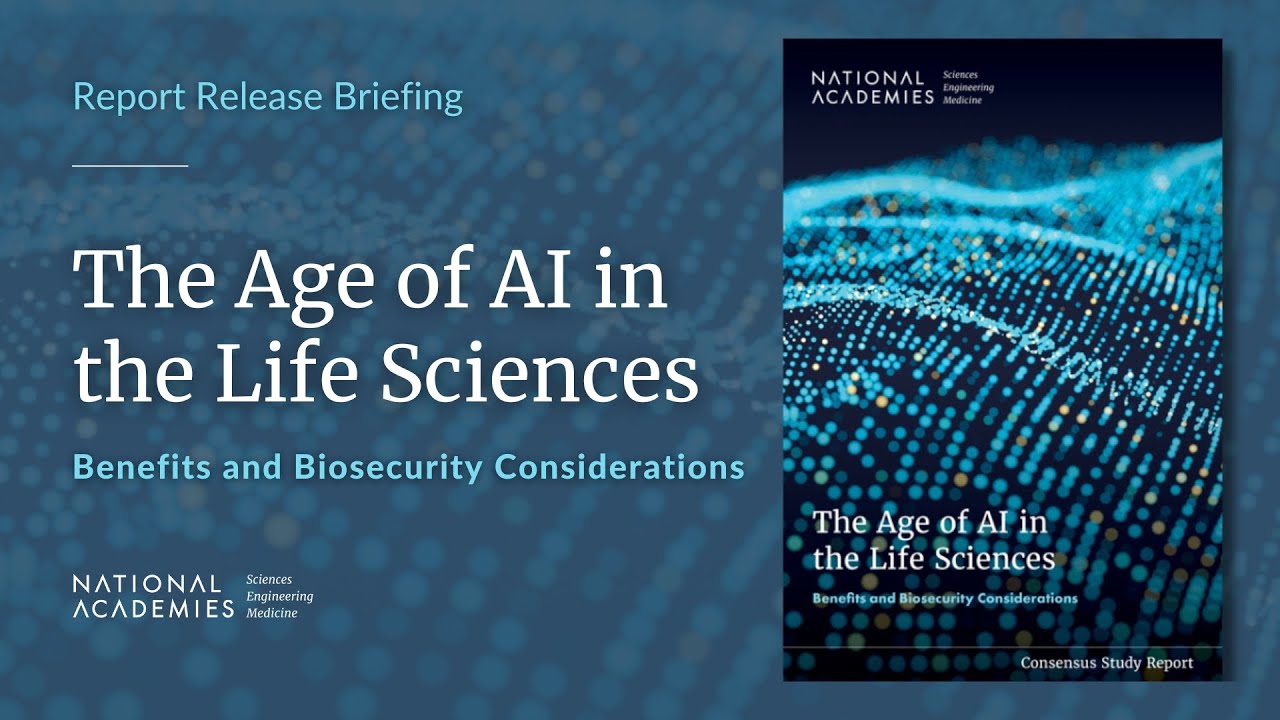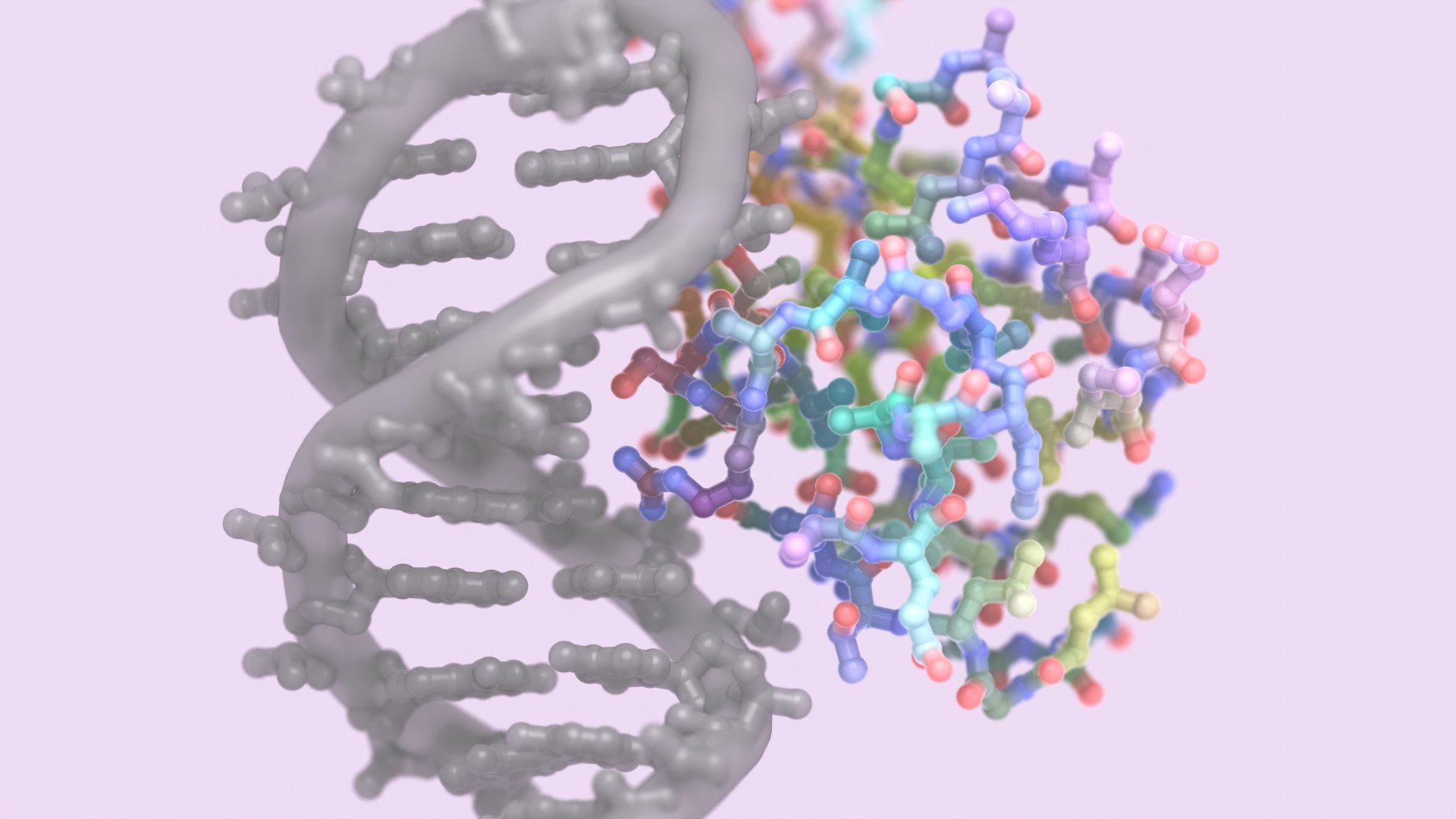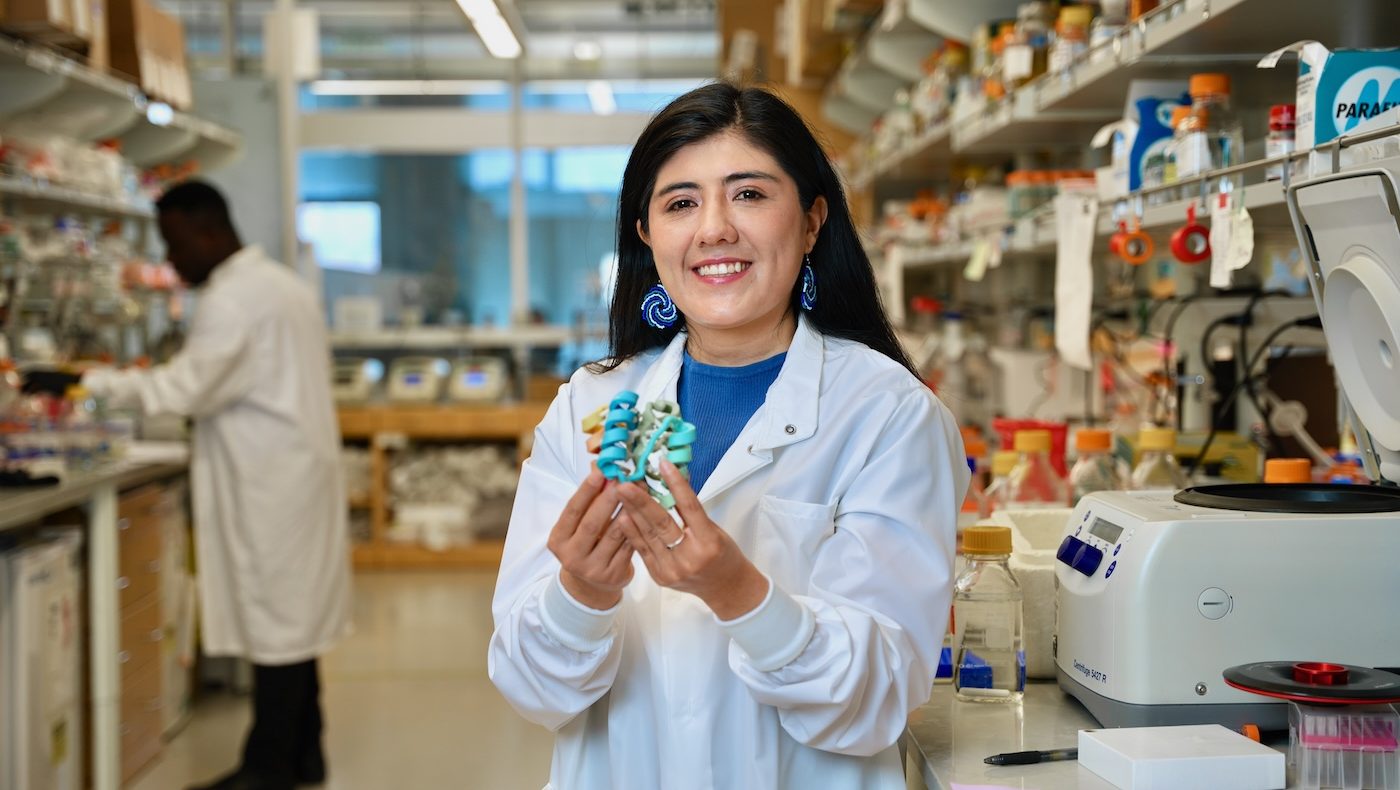Latest posts
-
RFdiffusion3 now available
This foundation model for biodesign can generate proteins that interact with any type of molecule commonly found inside cells.
-
RFdiffusion2: efficient enzymes from prompts
AI model that creates catalysts in weeks instead of years opens the door to degrading pollutants and building new medicines.
-
Teaching AI to build antibodies from scratch
Generating antibodies entirely on computers — no animal immunizations required — could unlock treatments for countless diseases.
-
Delivering protein nanoparticle vaccines via mRNA
Combining the speed of mRNA and potency of design proteins yielded up to 28-fold more antibodies — and a platform technology that could transform how we respond to viral threats.
-
Creating multi-protein systems with atomic precision
Protein design is expanding from building single molecules to generating entire systems from scratch with parts that work together in ways nature never explored.
-
Hitting ‘undruggable’ disease targets
Custom proteins made with AI bind disordered proteins and peptides with atomic precision.
-
Introducing RFdiffusion2
A new deep-learning model developed by scientists at the IPD and MIT is redefining what’s possible in enzyme design.
-
NASEM Releases Consensus Report on Biosecurity and AI
By understanding the opportunities and risks of AI advances, we can collectively advance science in ways that improve the health of all people.
-
Introducing LigandMPNN
ProteinMPNN revolutionized protein sequence design. LigandMPNN opens the door to programming protein–ligand interfaces of all kinds.
-
Neutralizing deadly snake toxins
New AI-generated proteins that protect animals in the lab promise safer, more accessible antivenoms.

